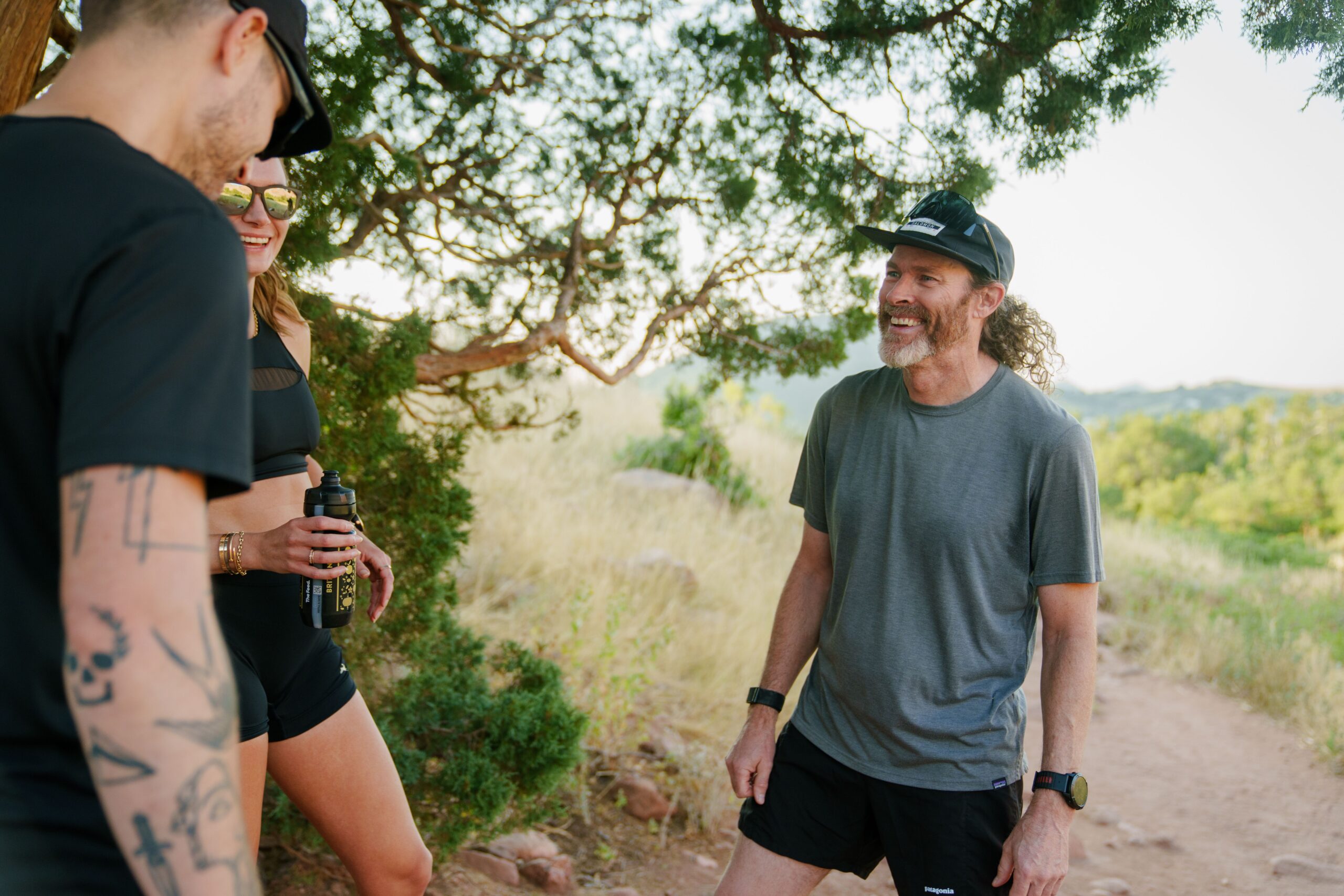In this episode, Ryan Bolton and Erin Carson discuss the details of preparing athletes for the 2024 U.S. Olympic Triathlon team in Paris. Ryan Bolton, Director of High Performance for U.S.A. Triathlon and owner and founder of BEST Coaching brings extensive experience as an Olympian for the 2000 games and coaching top-tier athletes, including 2024 Olympian Morgan Pearson. Erin Carson, a renowned strength coach and head coach at ECFIT Performance Strength, shares her unique perspectives on optimizing athletes’ physical and mental resilience, including Taylor Knibb.
The coaches also break down the elements that separate Olympic athletes from other elite athletes, the explosiveness of modern triathlon races and the resources Team U.S.A. is deploying for this year’s competitions to aim for the best results.
Standout Quotes
Ryan Bolton on What Makes an Olympian: “I always say I feel like like to be at the top top level. So be to be at the Olympic level, you have to have three things, and you have to have all three of them. And I’ve met a lot of athletes who have one or two of them, but getting all three is hard. And first is what I call the legs, which is physiology, just pure physiology…the second thing I always say is the head. And what I mean by that is, like, the mental, like, ability to understand what it takes, understand the dynamics of the racing, understand the training, the intelligence quotient of of the racing and the training getting into it. And then the third part is the heart, and that’s more like the passion, the grit, the drive.”

Erin Carson on Lessons for Cyclists From Today’s Triathletes: And I think that cycling might be a little uncomfortable with these triathletes winning their time trial championships, but it shows you, I think, the beauty of triathlon because the strength, of building the engine in the pool without stress, physical the physical stress would be different in the pool. And also, the ability to run and put stress into bone and into tissue that connects to bone, that there might be an upside to a cyclist maybe going for a run every now and then.”
“It’s interesting because over the past 24 years, the sport has changed, and the dynamics of racing at the Olympics have changed. I would say it’s faster than ever. It’s more aggressive than ever. The bike is definitely more aggressive than the days when I was there, and the technical skills of athletes are significantly higher.”
Ryan Bolton on Triathlon Competition Since Racing the 2000 Games in Sydney
Ryan Bolton on the Unique Opportunity for Triathletes at the Olympics: “And I think in the Olympics, what’s unique about it, is with the mixed relay is, that camaraderie with the team, you know, is really, really important. I mean, obviously, they’re competing in the individual race[s]. But after that, like, you know, really, it’s team building. Really bonding with the team to to perform well.”
Erin Carson on the Elite Attributes of Taylor Knibb: “I know that the genetics are in place. Taylor’s really, really smart. You know, she’s not just intelligent. She’s also emotionally intelligent. And I give her a lot of credit. I’ve been really blessed to be with her for quite a while, and I hope I get to be with her for a lot longer. And I just love being around her. She’s tenacious. She’s exact in the work. That’s why having a coach like Dan [Lorang] is so great for Taylor because she trusts him, and they’re slowly building this beautiful relationship where she’s going. She’s got so much room to even get better, which is amazingly scary.”
“Being so close, to [Taylor Knibb] who made it, who who has the opportunity, and I know Morgan [Pearson] really well too…and I couldn’t be happier for both Morgan and Taylor who didn’t leave it up to the judges. You know, they went out and took on the challenge, and both of them had to race for their lives to get the early the early selection.”
Erin Carson on the Goal of Competing for a Medal
Ryan Bolton on the Coaching and Support of the Athletes: “It’s different for every athlete, and every athlete has their own prep. Like, once again, at USAT, we just try to provide them with the best possible scenario for them and, you know, what they’re doing. Some of the athletes are based in Europe. Some of them are based in the U.S.”
Erin Carson on Coaching Strength to Athletes Under a Head Coach: “As a strength coach with all of my athletes, and I have a few professionals that I work with, having access to their TrainingPeaks is incredibly helpful. I don’t comment on their TrainingPeaks unless it’s something really relevant or something I see. But I do see that as a strength coach, the TrainingPeaks relationship is a sacred space for the head coach and the athlete and should be treated as such. That’s where they feel safe, and they can communicate. And that communication is so, it’s so raw sometimes, you know. Because these athletes are working so hard, and it’s emotional, and it can be intellectual, and it can be, you know, not always, FTPs and heart rates and body sensors. The soft skills, how you felt.”

Ryan Bolton Online
BEST Coaching
Facebook
Instagram
Twitter




